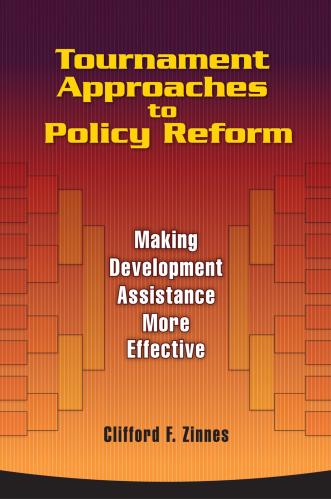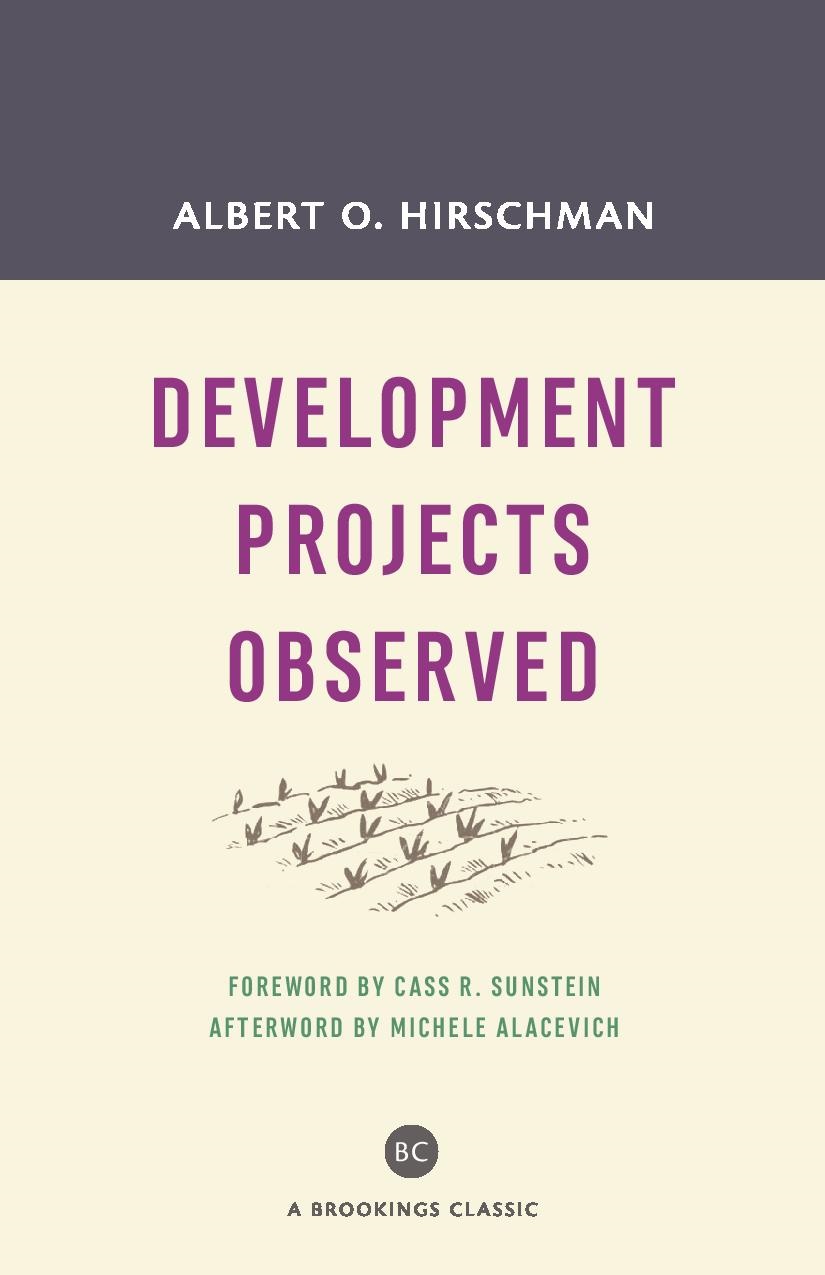


Book
Originally published in 1967, the modest and plainly descriptive title of Development Projects Observed is deceptive. Today, it is recognized as the ultimate volume of Hirschman’s groundbreaking trilogy on development,...
Originally published in 1967, the modest and plainly descriptive title of Development Projects Observed is deceptive. Today, it is recognized as the ultimate volume in Hirschman’s groundbreaking trilogy on development, and as the bridge to the broader social science themes of his subsequent writings. Though among his lesser-known works, this unassuming tome is one of his most influential.
It is in this book that Hirschman first shared his now famous “Principle of the Hiding Hand.” In an April 2013 New Yorker issue, Malcolm Gladwell wrote an appreciation of the principle, described by Cass Sunstein in the book’s new foreword as “a bit of a trick up history’s sleeve.” It can be summed up as a phenomenon in which people’s inability to foresee obstacles leads to actions that succeed because people have far more problem-solving ability that they anticipate or appreciate.
And it is in Development Projects Observed that Hirschman laid the foundation for the core of his most important work, Exit, Voice, and Loyalty, and later led to the concept of an “exit strategy.”
From the foreword by Cass R. Sunstein:
Albert Hirschman loved surprises, ironies, and paradoxes. He was delighted by human foibles and even more, he celebrated human creativity. He distrusted large claims and law-like generalizations. He enjoyed serendipity. He insisted that human history provides “stories, intricate and often nonrepeatable,” which “look more like tricks history has up its sleeve than like social-scientific regularities, not to speak of laws.” A refugee from Berlin during the rise of Nazism, he was keenly interested in “the many might-have-beens of history,” including “felicitous and surprising escapes from disaster.”
The largest idea in this remarkable book involves the Hiding Hand, which turns out to be a bit of a trick up history’s sleeve. It also provides a felicitous escape from disaster. It’s a story, and an intricate one, but in Hirschman’s view, it is repeatable. Hirschman believes that it tells us a great deal about development, if we are careful to specify the underlying mechanisms.
This reissue is a Brookings Classic, a series of republished books for readers to revisit or discover previous, notable works by the Brookings Institution Press.
Related Books

Clifford F. Zinnes
June 10, 2009

Gene B Sperling, Rebecca Winthrop Christina Kwauk Malala Yousafzai
October 21, 2015

Laurence Chandy, Akio Hosono, Homi Kharas, Johannes Linn
April 15, 2013
Authors
Foreword by
Afterword by
Albert O. Hirschman (1915-2012) was an influential economist who is widely regarded as one of the twentieth century's most extraordinary intellectuals. His other books include Exit, Voice, and Loyalty: Responses to Decline in Firms, Organizations, and States (Harvard University Press, 1970) and The Strategy of Economic Development (Yale University Press, 1958).